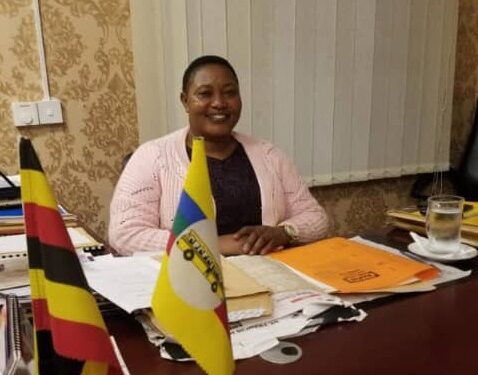The Minister for the Presidency Milly Babalanda had a first virtual interface with members of the District Security Committees on Wednesday 15 where a wide range of issues about security and service delivery were discussed.
The discourse, arguably the biggest of its kind with over 10,000 attendees discussed in depth factors hindering the efficient execution of the mandate of the District Security Committees as insecurity hits worrying heights in the country.
Key among the speakers of the day included the Director of Public Prosecution(DPP) Justice Jane Frances Abodo who extensively tipped the officials on how security and the judiciary can work hand in hand to ensure stability and allow the rule of law to flourish.
Others were; Internal Security Organisation Director General(ISO/ DG) who was represented by Deputy, Col. Emmy Katabaazi, representatives from the various police Directorates, Ministry of Local Government, RDCs, DPCs, DISOs, Magistrates and Prosecutors, among others.
Babalanda, in her address the unnecessary laxity from the DSCs that has partly led to a surge in crime. She specifically hinted at the enforcement of the COVID19 Presidential guidelines on curfew, masks and the ban on cattle markets that have continued to operate despite the directive by the president. She also castigated some officials involving themselves in corruption, a vice she says is adversely affecting service delivery with some officials asking for money in exchange for service to the public.
Gaps in intelligence gathering due to the lapse in vigilance by the officials. Babalanda emphasized teamwork from all the security stakeholders as the only way to ensure general stability.
Justice Obodo, on behalf of the Directorate of Public Prosecutions, decried political interference and corruption by public officials as a key hindrance to the successful protection of crime. She also noted that some RDCs have categorically turned themselves into courts of law, often deciding on cases, mainly over land conflicts, which has adversely affected the efficiency of the judiciary.
She called upon the officials, together with the public to always endeavor to report all cases of corruption to the Directorate, other than just reporting in the media. This, she said would greatly help them to maintain sanity in their ranks.
The DPP also called for the amendment of the National Security Council Act 2000 to have a representative from the office of the DPP as a member of the District Security Committee. She noted that these Committees lack regulations on how to conduct meetings and urged Resident State Attorneys to continuously attend DSC meetings.
The Director Operations, Uganda Police Force, AIGP Edward Ochom tasked the security heads to profile and monitor suspects and former convicts to establish what they are doing currently. He cited the murder of the Ntoroko District NRM Chairman, Vincent Mugume who met his death at the hands of former murderers, who had just been released from prison after serving eight years over a related case. He also called upon security officers to work as a team adding that disunity fuels crime as criminals take advantage of the divisionism in security to execute their missions.
Lt. Col. Emmy Katabazi, the Deputy Director General Internal Security Organization (ISO) expressed concern that members of the DSC rarely meet to address security challenges in their areas and as such fail to tame the wave of misguided criminals citing the recent murders in Masaka.
The Government Chief Whip, Thomas Tayebwa, said that the poor working relations between RDCs and RCCs and their involvement in land evictions, corruption and use of excessive force have made the public lose confidence in them.
“It is shameful for public officers who are working for the same government to engage in unproductive fights and disagreements which are usually caused by greed, selfish interests and failure to appreciates each other’s role”, Tayebwa said.
The Deputy Director Crime Intelligence, Charles Asaba urged members of the DSC to utilize government airtime on radio stations to address residents’ security concerns.
The Permanent Secretary Ministry of Local Government, Ben Kumumanya noted that security is a vital component in government’s efforts to promote democracy and socio-economic transformation. “Decentralization was made to help people participate in government programmes and there is no way you can transform Uganda without security,” Kumumanya said.
Do you have a story in your community or an opinion to share with us: Email us at editorial@watchdoguganda.com













